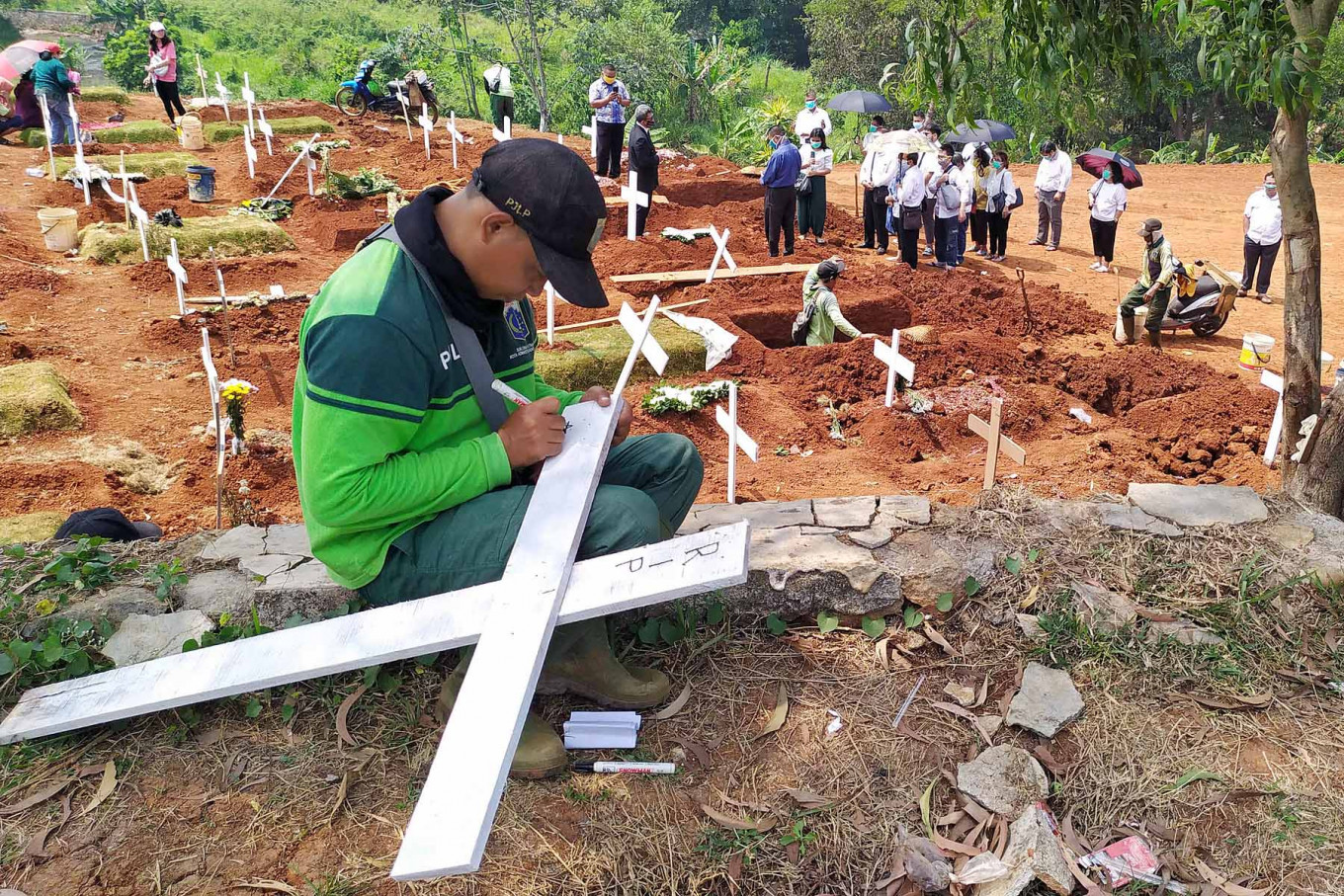
Jakarta back under PSBB, but less strict than before
by Ardila SyakriahThe Jakarta administration has decided to reimpose large-scale social restrictions (PSBB) starting on Monday, but the curbs are more relaxed than when they were first implemented in April, leading experts to doubt the policy will bring down cases and deaths in the capital.
Jakarta Governor Anies Baswedan said at a press conference on Sunday that the measure would last for two weeks and could be extended.
Workplaces in 11 essential sectors – including health, food, energy, communications, finance, logistics and daily needs retail – will be allowed to remain open at 50 percent of capacity, while private companies outside these sectors as well as government offices must implement work-from-home policies and allow no more than 25 percent of their employees to work in the office at the same time.
"We're now seeing cases emerge mostly from offices. That's why, for the PSBB starting on Sept. 14, our main focus will be on restrictions in office areas," he said.
Some of these restrictions were more relaxed than the first time the city imposed the PSBB in April, when all places of worship had to be closed, malls and markets were allowed to open only for essential daily needs and nonessential companies had to get an Industrial Ministry permit to operate.
"There's no difference to the past six months. I'm confused as to how they could distinguish between the 25 and 50 percent capacity," Masdalina Pane of the Indonesian Epidemiologists Association (PAEI) said.
She expressed doubt that the measure would reduce COVID-19 transmissions, saying that now, with new cases reaching thousands, all people in the affected areas should be required to stay at home.
"During the PSBB in Jakarta, there could be people traveling to their hometowns, and when the PSBB is lifted, they'll come back to Jakarta. This has been happening repeatedly over the past six months; adding new cases in other regions [...]. When Jakarta sees declining cases, they'll rise again. This is what's called ping-pong transmission," Masdalina said.
Under the reimposed PSBB, travelers will not need to provide the previously required exit and entry permits (SIKM), while app-based motorcycle taxis, previously allowed only to carry goods, now may still carry passengers, provided they abide by health protocol, although a separate Transportation Agency regulation is to regulate the matter further.
Public transportation will be limited to 50 percent of passenger capacity, and the odd-even license plate traffic policy will be suspended for the duration of the PSBB.
The government’s spokesperson for all things COVID-19, Wiku Adisasmito, said during the press briefing that Jakarta's decision to reimpose the full PSBB had been coordinated with the national COVID-19 task-force and the central government.
Anies announced the return to full PSBB on Wednesday, citing an increasing number of daily new COVID-19 cases and a decreasing number of free hospital beds. The announcement sparked concerns over the country's economy among many, from government officials to the business community.
President Joko “Jokowi” Widodo said the plan should be "well and cautiously calculated”.
One of Indonesia's richest men, Budi Hartono of tobacco company Djarum, sent a letter to the President on Friday expressing his objection to the plan and citing data that, he said, showed that "the PSBB policy has proven ineffective in reducing infections in Jakarta".
A biostatistics researcher at the University of Indonesia's (UI) School of Public Health, Iwan Ariawan, who has been analyzing data for Jakarta, said that, during the first full PSBB, cases had in fact been on the decline, but spiked again afterward, when the city entered the so-called transition phase.
Iwan said his team's analysis since April showed that, as the proportion of people staying at home since April dropped, there was a rise in estimated new cases per day.
His team used mobility data from Cuebiq mobility insights and UNICEF and Jakarta's daily data on new cases based on reported symptom onset, concluding that, when fewer than 50 percent of Jakarta's residents stayed at home, there was an estimated increase of 100 cases a day for every 1 percent reduction in the share of those staying at home.
When the proportion was between 55 percent and 65 percent, as observed during the full PSBB, there was no difference in daily cases at around 140 cases per day.
Iwan expressed doubt that the new PSBB phase would lift the proportion of people staying at home to the desired 60 percent to suppress transmission. In that case the government had to ensure that at least 85 percent of the people who do not stay at home follow health protocol regarding face masks, frequent handwashing and social distancing, Iwan said, citing studies conducted abroad.
"If things run just the way they do now, it won't be enough. There need to be stronger efforts in communicating and raising people's awareness, as well as in enforcement," he said.
But even such restrictions and health campaigns, experts said, would not be enough to reduce transmission without improved isolation and contact-tracing.
Iwan said the Health Ministry's protocol had to be changed to require that all close contacts be tested right away, rather than just being advised to self-isolate for 14 days, and even if isolation was suggested, there should be tighter monitoring.